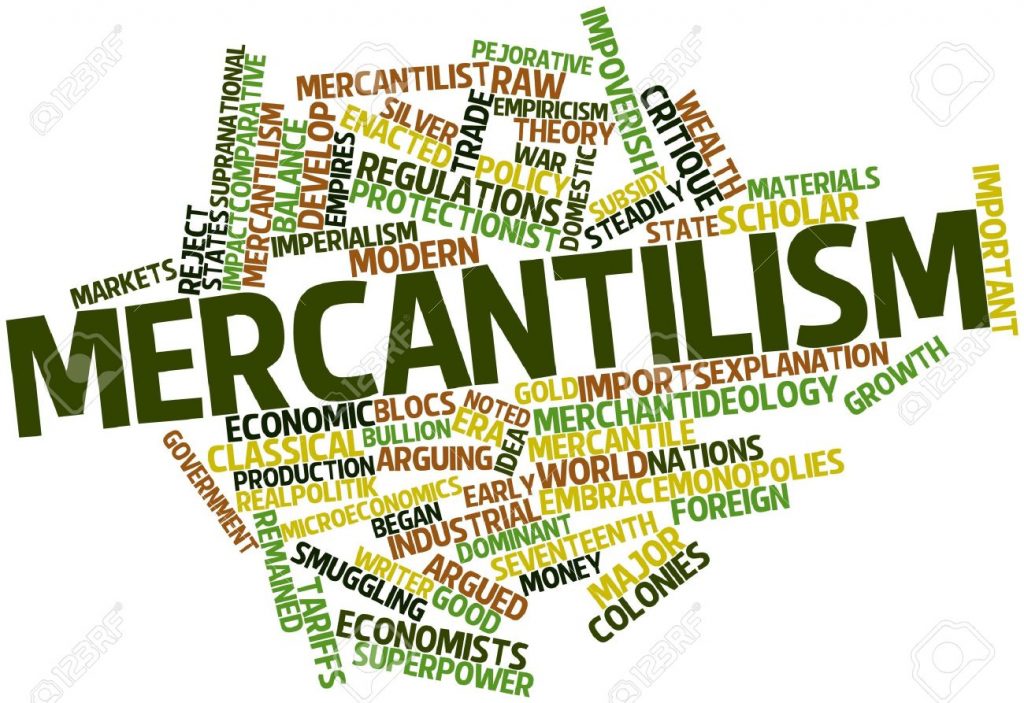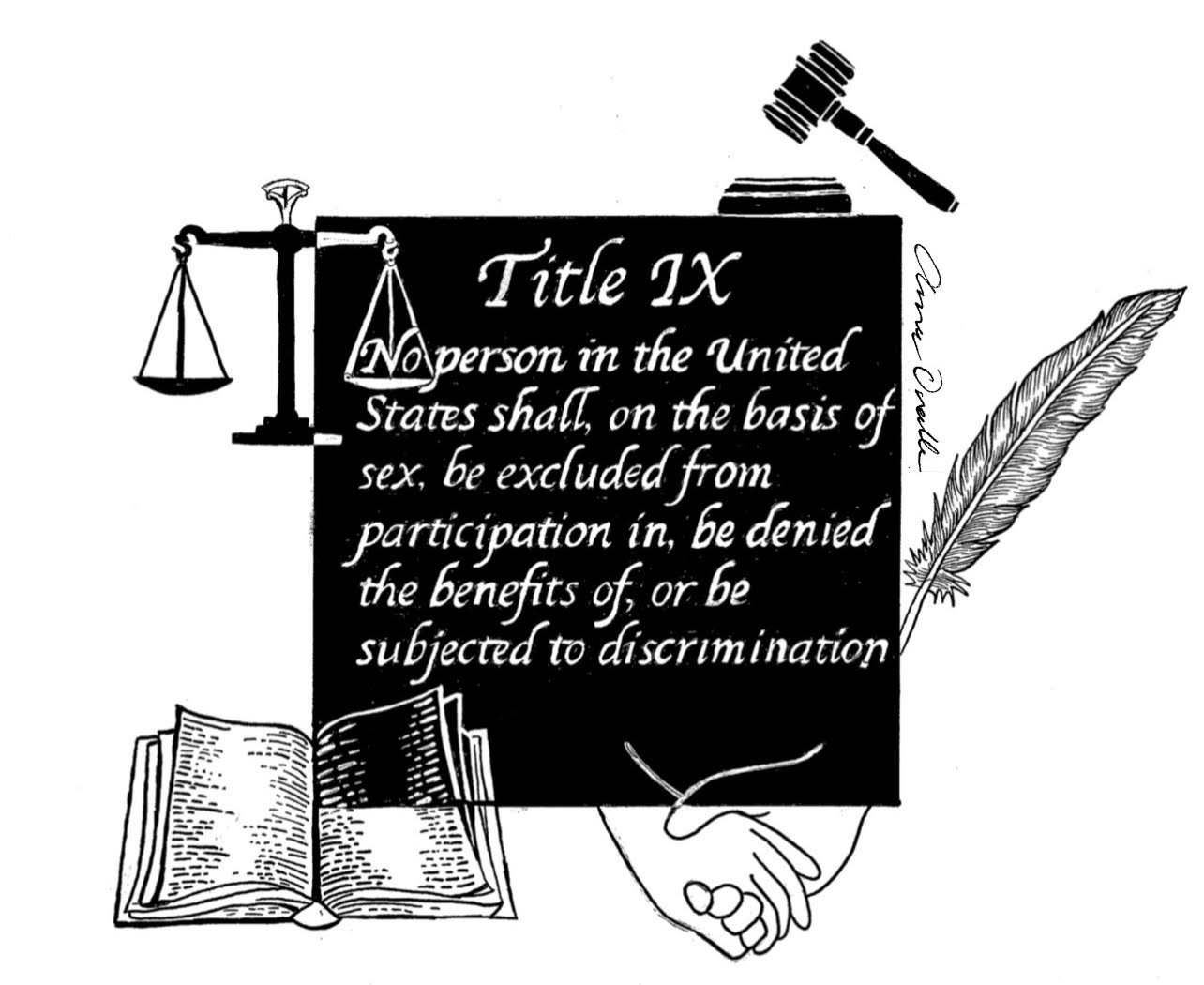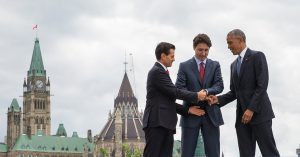Mercantilism is one of the most influential economic doctrines in the history of economics; however, the school that dominated European thought for two centuries is now considered a historical artifact. According to scholar Lars Magnusson, no self-respecting economist would associate himself or herself with mercantilism in today’s society.1

Mercantilism was the dominant economic policy most associated with the Early Modern period of the 16th and 17th centuries. During this era, the only true measure of a country’s wealth and success was thought to be the amount of gold and silver reserves that a nation possessed. In order to add precious metals to a nation’s reserves, it would seek to maximize its net exports and minimize its imports in order to secure its prosperity. Countries that had more wealth could in turn raise and maintain stronger armies and navies, and thus be more powerful. Moreover, according to the doctrine of mercantilism, the gold and silver reserves in the world were thought to be limited. Therefore, one’s gain in precious metals would come at some other country’s expense. Trade was a zero-sum game. For example, the gain from trade for England, mercantilism taught, would be a loss for France or Spain. The best way to ensure a nation’s prosperity was by limiting imports and increasing exports, thereby generating a net inflow of gold and silver, thus increasing the country’s overall gold stocks. Every European nation was trying to find a market for its exports to bring wealth while limiting imports, which would otherwise transfer wealth to others.2
Mercantilism was an economic theory that placed the nation, not the individual, at the center of economic activity. Economic nationalism, the effort to boost exports, was seen as a state-sponsored endeavor. States backed domestic production. Governments applied many forms of protectionist policies in order to promote efficient domestic consumption and maximize the export of surplus production. According to the famous British Navigation Act of 1651, all imports to England had to be carried to English ports on English ships. Colonial exports to Europe had to first land at an English port before going any further. These laws sharply restricted colonial trade with anyone else but England. With mercantilism, each country sought to export as much as possible while preventing imports. As a result, the economic importance of colonies to the success of colonizing powers became vital.3
According to the famous British Navigation Act of 1651, all imports to England had to be carried to English ports on English ships. Colonial exports to Europe had to first land at an English port before going any further. These laws sharply restricted colonial trade with anyone else but England. With mercantilism, each country sought to export as much as possible while preventing imports. As a result, the economic importance of colonies to the success of colonizing powers became vital.3

Colonies played a critical role for European countries. Each country sought to become self-sufficient so that they would not need to import goods from the other European powers. Colonies provided the precious metals and raw materials that European countries needed but could not produce at home. They were also markets for finished goods. According to mercantilism, colonies could only trade with their mother nation, and the direction of wealth should flow to the mother nation. In order to protect colonial trade, each European nation developed powerful navies, which protected its nation’s trade routes.4
The collapse of mercantilist ideology can be attributed to Adam Smith’s classic book The Wealth of Nations. Smith argued that the wealth of a nation does not consist in the amount of gold or silver stashed in its treasuries, but in the productivity of its workforce. He stated that trade can be mutually beneficial for nations, and that the general growth of wealth did not come at the expense of others, but that a “rising tide” of growth would benefit all, which is directly opposed to the ideology of mercantilism.5
- Lars Magnusson, Mercantilism: the shaping of an economic language (London: Routledge, 1994), 8. ↵
- John Maynard Keynes, The general theory of employment, interest and money (New York: Harcourt, Brace and Co., 1936), 3. ↵
- Alan Brinkley, American History: Connecting with the Past Volume 2, 15 edition (New York: McGraw-Hill Education, 2014), 26-27. ↵
- The Concise Encyclopedia of Economics, 2008, s.v. “Mercantilism,” by Laura LaHaye. ↵
- The Concise Encyclopedia of Economics, 2008, s.v. “Mercantilism,” by Laura LaHaye. ↵



85 comments
Kenneth Cruz
Great job on writing this article Mehmet! I am glad to see that you took and interest in this topic and decided to write about it. You explained the concept very clearly and really went into depth on why this was a big step for economic growth at that time. It seems like you tried to stay as true to history as possible.
Gabriella Parra
I loved your use of images in this article. Especially the use of the political cartoon. I find that political cartoons about mercantilism are always super interesting. Your explanation of mercantilism was very clear. It was such an unfair system from the perspective of the colonies, and it seems it just couldn’t exist on such a large scale today. Great job!
Matthew Tobar
First and foremost, this was a very well-written article, it’s evident it was thoroughly researched, and it gets the point across. I like how the author explains mercantilism as a broader topic, and how he does it in a way that helps the reader understand the concept. I like the shout-out to Adam Smith’s The Wealth of Nations, especially the line about the productivity of the workforce. All in all, it was a very good article, good job!
Claudia Sanchez
This article is fascinating and gives a detailed explanation of the economic system of mercantilism which dominated the political economics of the Americas, and the world, during its founding as the 13 colonies. This article has amazing photographs that connect with the themes of the article and enhance the understanding of the concepts talked about in this article. I love how you cover both the rise and the height of mercantilism along with its fall and the switch to a new economic ideology globally.
Marycarmen Sanchez
After reading this article, I had a much better understanding of what mercantilism was back in the 17th and 18th century. I had a very broad view of it before, but with the way that you wrote this, I understand it better. It seemed like such a selfish way to run an economy, but most things at that time were because of selfish reasons and self-benefit. I would love to hear your thoughts on other economies, such as capitalism.
Aaron Onofre
This was a great article to read and it explained mercantilism very well. I find it interesting that now days, we completely disassociate ourselves with mercantilism. It makes me think did the view of the success of the mother country being the most important thing to now the success of the individual to be more important happened immediately. Or did the the ideas of Adam Smith slowly change the people’s view on wealth.
Kensley Dieckow
I really liked your formatting for your article. You would begin a subject with a broad statement and then the rest of your paragraph would be explaining your conviction. Mercantilism has always been a subject that I get the broad idea of but if you asked me to explain it I probably wouldn’t be able to. You did a very good job explaining to were I think I would be able to explain it to someone else.
Daniela Iniguez-Jaco
Let me start off by saying this was a well-written article! Prior to reading this article, I had an idea of what mercantilism was, but now I have a better understanding. It was interesting to read how mercantilism has changed over the years and how it used to be so dominant during the 16th and 17th centuries. I do wish there was a little more information on it, but it did summarize it which cleared up some things.
Jaedean Leija
In reading the article we learn the definition of mercantilism in a more in-depth way. We learn that it made an economical impact and how it did during their time but we also learn why we wouldn’t was to participant in it during our time in era.mercantilism was the introduction to money and power from my understanding of the article. Mehmet Samuk did a good job getting to the point then leads it to explain the point in the way we would understand
Perla Ramirez
Mercantilism essentially could tell you how wealthy a country really is. The more gold and silver you had the more “powerful” you seemed. In which they didn’t want to trade because it would benefit other countries other than themselves. So they decided that they would only trade with their mother nation. Which would result in wealth flowing to the mother nation.